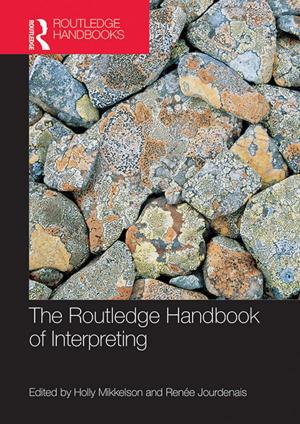Strategic Partnerships in Asia
Balancing without alliances
Nonfiction, Social & Cultural Studies, Social Science, Cultural Studies, Ethnic Studies, Political Science| Author: | Vidya Nadkarni | ISBN: | 9781135265243 |
| Publisher: | Taylor and Francis | Publication: | January 21, 2010 |
| Imprint: | Routledge | Language: | English |
| Author: | Vidya Nadkarni |
| ISBN: | 9781135265243 |
| Publisher: | Taylor and Francis |
| Publication: | January 21, 2010 |
| Imprint: | Routledge |
| Language: | English |
This book examines the nature and implications of the increasing interaction among three secondary powers in the world: China, Russia and India. It provides an in-depth analysis of the complex and often contradictory goals underlying their emerging strategic partnerships along with an assessment of the role these partnerships play in the larger regional and global contexts. In particular, it focuses on the important region of Asia/Eurasia, where these countries seek to increase their influence and compete against the prominence of the United States.
Breaking new ground in looking at the ways in which the triad of bilateral strategic partnerships affect the countries’ individual aspirations for power, status and wealth, this book argues that their attempt to develop codified, formal bilateral partnerships and trilateral ties that seek to neither antagonise nor fully embrace each other is both a challenge to peace and security and an opportunity for cooperation. It concludes by suggesting scenarios under which competitive or cooperative economic and security orders may emerge.
Clearly written and thoroughly accessible, this book will be an informative text for courses on international relations, international security, foreign policy and Asian and Russian politics.
This book examines the nature and implications of the increasing interaction among three secondary powers in the world: China, Russia and India. It provides an in-depth analysis of the complex and often contradictory goals underlying their emerging strategic partnerships along with an assessment of the role these partnerships play in the larger regional and global contexts. In particular, it focuses on the important region of Asia/Eurasia, where these countries seek to increase their influence and compete against the prominence of the United States.
Breaking new ground in looking at the ways in which the triad of bilateral strategic partnerships affect the countries’ individual aspirations for power, status and wealth, this book argues that their attempt to develop codified, formal bilateral partnerships and trilateral ties that seek to neither antagonise nor fully embrace each other is both a challenge to peace and security and an opportunity for cooperation. It concludes by suggesting scenarios under which competitive or cooperative economic and security orders may emerge.
Clearly written and thoroughly accessible, this book will be an informative text for courses on international relations, international security, foreign policy and Asian and Russian politics.















